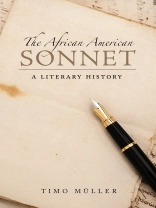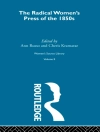Some of the best known African American poems are sonnets: Claude Mc Kay’s ’If We Must Die, ’ Countee Cullen’s ’Yet Do I Marvel, ’ Gwendolyn Brooks’s ’First fight. Then fiddle.’ Yet few readers realize that these poems are part of a rich tradition that formed after the Civil War and comprises more than a thousand sonnets by African American poets. Paul Laurence Dunbar, Jean Toomer, Langston Hughes, Margaret Walker, and Rita Dove all wrote sonnets.
Based on extensive archival research,
The African American Sonnet: A Literary History traces this forgotten tradition from the nineteenth century to the present. Timo Müller uses sonnets to open up fresh perspectives on African American literary history. He examines the struggle over the legacy of the Civil War, the trajectories of Harlem Renaissance protest, the tensions between folk art and transnational perspectives in the thirties, the vernacular modernism of the postwar period, the cultural nationalism of the Black Arts movement, and disruptive strategies of recent experimental poetry.
In this book, Müller examines the inventive strategies African American poets devised to occupy and reshape a form overwhelmingly associated with Europe. In the tightly circumscribed space of sonnets, these poets mounted evocative challenges to the discursive and material boundaries they confronted.
Om författaren
Timo Müller is professor of American studies at the University of Konstanz. He is author of The Self as Object in Modernist Fiction: James, Joyce, Hemingway and coeditor of English and American Studies: Theory and Practice and Poem Unlimited: New Perspectives on Poetry and Genre. He has published articles in various English and German journals, including American Literature, Arizona Quarterly, and Twentieth-Century Literature.












